Alltrust Services Limited Copyright © 2026
Alltrust is the trading name of Alltrust Holdings Limited (registered in England number 05642425), Alltrust Services Limited (registered in England number 05365396), Alltrust SIPP Limited (registered in England number 05398985) and Alltrust SSAS Limited (registered in England number 07886449) with a registered address of Warner House, Suite 201, Castle Street, Salisbury, England, SP1 3TB. Alltrust Services Limited is authorised and regulated by the Financial Conduct Authority (FCA) under FCA registration number 461966. SSAS and Trustee services are not regulated by the FCA.
Privacy Policy & Cookies |
Terms & Conditions of Business |
Legal Information |
Scam Alert |
Complaints
Alltrust requires members to obtain regulated financial advice for certain pension transactions, including but not limited to benefit crystallisation, the transfer of pensions into or out of your Alltrust pension, and the transfer or purchase of non-standard investments, unless the member has been formally assessed and accepted as a Knowledgeable Investor by Alltrust.
Where advice is required, it must be provided by a suitably qualified and regulated financial adviser. That adviser must have a signed agreement with us, except in the case of transfers out, where they must simply hold the appropriate regulatory permissions. This requirement is in place to ensure decisions are made in the best interests of our members and in line with regulatory expectations.
Alltrust reserves the right to decline any instruction that does not meet this requirement.
If you are unsure whether advice is required for your specific request, please contact us before proceeding.
Be Scam Vigilant
Scams are more prevalent than ever with greater reliance on the use of emails, texts and social media which has led to life changing consequences for pension savers suffering significant losses, where scammers pretend to be a regulator or a financial service or have simply stolen your credentials. Plus of course the traditional ‘too good to be true’ scams where even ‘trusted’ financial advisors are offering unrealistic returns, poorly aligned opportunities and outcomes, or avoiding/evading tax; where investments are lost for good, and you may have a large tax bill on top. Please see this FCA campaign called ScamSmart - https://www.fca.org.uk/scamsmart
and our website on current threats and what to look out for.
